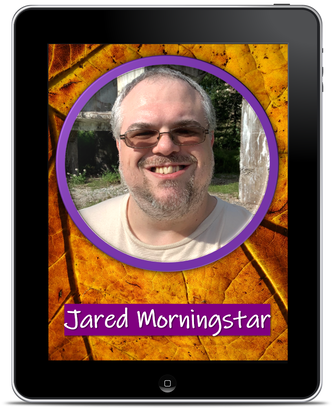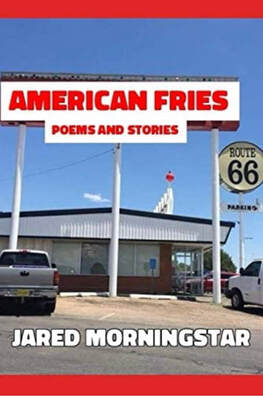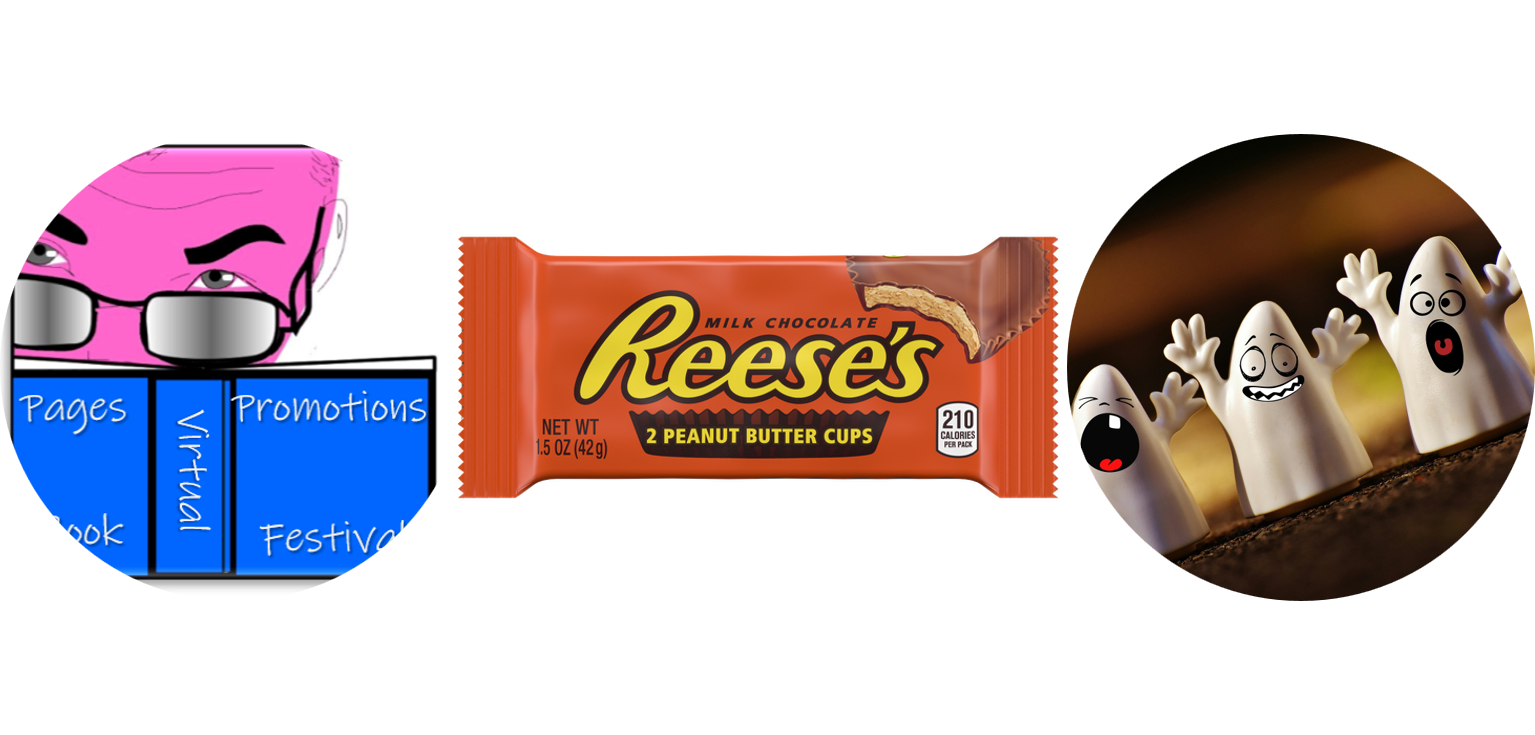 Would you like to get to know more about how the inner book brain of an Indie Author works? This is the place! Periodically, we'll invite an Indie Author to open up their brain, and show us inside. We'll have a conversation that deals a little bit with writing craft, reading influences, and some other fun stuff. Today, we thumb through the pages of Indie Author Jared Morningstar's grey matter... Discover More About Jared Morningstar HERE! What literary pilgrimages have you gone on? My favorite literary pilgrimages I have been on are absolutely my two trips down old Route 66 from Chicago to Santa Monica. The Grapes of Wrath is my all-time favorite novel, and following the same path across the country as the Joad family is really surreal, especially when you get out west and occasionally see a rusted out jalopy alongside an abandoned stretch of the old highway. What is the first book that made you cry? Is it terrible that a book has never made me cry? Again, the closest I have ever come is reading Tom Joad’s goodbye scene in The Grapes of Wrath. The scene and the whole novel is emotionally moving. What is your writing Kryptonite? Self-Doubt. When you have a serious case of impostor syndrome, the struggle is real. Do you want each book to stand on its own, or are you trying to build a body of work with connections between each book? I only currently have one book: a collection of poems and short stories. I can’t ever see myself writing anything that resembles a series, but since my personal creative aesthetic is all over everything I write, it may seem like there are at least thematic and visual connections between all of the pieces that I write. How did publishing your first book change your process of writing? I will be far more patient next time. I did a lot of editing, and I realize now that I make far more mistakes than I care to admit. To save the embarrassment, I plan on taking a lot more time to make sure things are right before submitting a manuscript. As a writer, what would you choose as your mascot/avatar/spirit animal? Well, this is a fun question. Can I say rock pioneer Chuck Berry driving a ‘57 Chevy? What did you edit out of your books? (keep it family-friendly, please) I mostly just spent time cleaning up a few plot details that weren’t consistent. Occasionally, I’d make adjustments to characters, but most of my content edits involved minor plot changes. What one thing would you give up to become a better writer? A better writer on the level of George Saunders, Allen Ginsberg, or Flannery O’Connor? My left hand. Well, maybe not the whole hand. Likely a finger or two though. What is your favorite childhood book? My favorite book from my early childhood was Cloudy with a Chance of Meatballs. I loved hearing stories of awesome faraway places. And food. My favorite book from my tween years though was The Outsiders. I loved the characters, the drama, and the 1950s culture. What is the most difficult part of your writing process? Getting started. It’s not the motivation; it’s the impostor syndrome I mentioned. I often get ideas I love, but I always hear this voice that tells me I don’t have the ability to deliver on those ideas. Once I get going, though, things are easier. What is the easiest part of your writing process? Honestly? Revising and editing. I am sure that isn’t a common answer, but I find that once I have finished a piece, I don’t feel nearly as much pressure, and I enjoy re-reading my work to figure out what works and what doesn’t so I can do what I have to do to make the piece better. How long on average does it take you to write a book? Well, the first one took 16 years, so I sure hope it won’t be that long next time! I can’t see myself writing a novel, so it all depends on how productive I am in writing new poems and stories. I am not always the most prolific writer, but I do hope that it won’t be nearly as long before the next collection is finished. A common misconception entwined with authors is that they are socially inept, how true is that? I mean, I am not the most socially-capable person, but I wouldn’t say I am socially inept either. And my wife, who is also a published writer and poet, certainly isn’t. So, I don’t think it’s true, even if I’d rather observe the world sometimes instead of talk all the time. When did it dawn on you that you wanted to be an author? Not until college when I started taking creative writing classes. I still consider myself more of a creative writing teacher than a writer, but I am enjoying writing now more than I ever have. Who are your biggest literary influences? John Steinbeck for sure. He was such a brilliant writer and thinker, as well as a stone-cold realist. So too were the Southern Gothic writers from the early-mid 20th century whose works I love beyond words: Faulkner, O’Connor, Welty, McCullers, Hurston, Capote, Tennessee Williams, etc. All of them used their voice to speak out against flaws in society, which I think is so important. A lot of my favorite poets did or are doing the same thing: Ginsberg and the entire Beat Generation comes to mind quickly. So too do Nikki Giovanni, Kevin Coval, Sherman Alexie, Joy Harjo, Rudy Francisco, Nate Marshall, Clint Smith, and Luis J. Rodriguez. There is also an incredible Detroit-based poet whose work I love by the name of John Jeffire. He writes about the Rust Belt so well, and I am a sucker for anything Rust Belt. Finally, music is always a huge inspiration. Whether it’s '50s rock and roll, the vulnerability of Hank Williams Sr., the storytelling of Bruce Springsteen, or the honesty of Jason Isbell, I know I can always put on a record whenever I need to feel creative. What’s your favorite movie which was based on a book? Why? High Fidelity is such a great book-to-movie translation. So too is Stranger than Fiction. Those two come to mind first. How did it feel when your first book got published? How did you celebrate? It was unreal. It’s been over a month, and it still doesn’t feel real. The day I signed my book contract, my family and I enjoyed some good barbecue and an ice cream cake from Dairy Queen. It was great. What is that one thing you think readers generally don’t know about authors? I hate to speak for all authors, but I don’t think all readers understand that even though a little bit of us makes it into anything we write, the main character isn’t always us. Even in first-person poetry. Can you tell us about your current projects? I am currently writing stories and poems and plan on submitting them as individual pieces to literary journals. Eventually, those will be collected and put into my next book. Another project I am looking forward to is the publication of Young Voices, an international anthology of teenage short fiction that I worked on as a guest editor for Culture Cult Press. Are you attending any conventions/festivals where readers can meet you and/or buy your books? Please provide all the “find it” information. Well, COVID-19 has put a halt on my plans for most author events for the time being, though I hope to perhaps participate in some virtual events in the near future. Please provide links and/or instructions about how readers can purchase signed copies of your books. I’d ask readers to email me ([email protected]), and we will work something out via PayPal. If folks don’t mind if the book isn't signed, I’d suggest ordering the book (American Fries: Poems and Stories) on Amazon.com Is there any advice you would like to give to aspiring authors? To anyone who wants to become a better writer, I have three pieces of advice: 1. Read a lot of good stuff. 2. Don’t be afraid to write a lot of “bad” stuff. 3. Share everything 1. It’s essential that aspiring writers study the works of great authors and poets. Studying the works of others, specifically the works of the very talented, helps to not only provide ideas for pieces, but also how to deliver those ideas effectively. 2. Every year in my classroom, I have students who find themselves in a state of writer’s block. More often that not, this occurs after they start to learn what great writing is, and they get frustrated that they are not able to produce material that is as good as they want it to be. To counter that, I encourage writers to stop being afraid to write “bad” stuff and to save every scrap of it. Not only can a lot of good ideas and lines be found for later use in “bad” drafts, but it is essential to keep practicing writing if they want to improve their skills, just as musicians and athletes must continue to practice their crafts. 3. I have never had someone become a great writer in class who did not share frequently in our workshop sessions. Feedback from peers is essential. Not only do they provide advice on how to improve a piece, but they also can provide ideas for direction. Without that feedback, writers may get better, but they will improve at a much slower rate. I tell my students that success is all about trusting each other and buying into the workshop system. Those who do usually end up shining, or growing at the very least, when all is said and done. Simply put: the more sharing you do, the more feedback you get, the faster you grow.
0 Comments
Leave a Reply. |
WelcomeYou'll find some interesting stuff here... some Op Eds, some Information, Book Reviews, and More. Poke around the categories and see what ruffles your feathers... in a good way! Archives
July 2024
Categories
All
|


 RSS Feed
RSS Feed